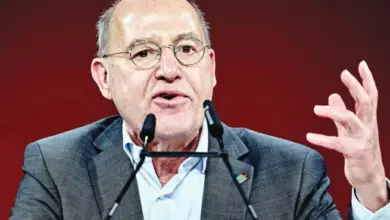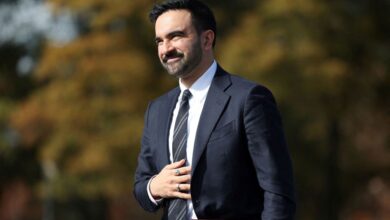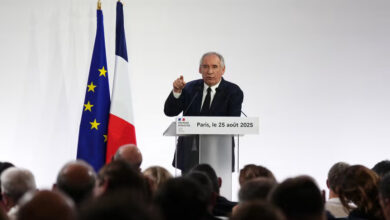Egyptian society has been under the influence of revolutionary fever since the ouster of former President Hosni Mubarak. Now, that fever has spread to private universities.
While some private universities, such as the non-profit American University in Cairo, foster an atmosphere of student activism, many others have lacked any form of on-campus politics until recently, and their students were widely perceived as being apathetic.
Over the past month, however, this stereotype has been shattered, with large protests taking place simultaneously at the German University in Cairo (GUC), the Modern Sciences and Arts University (MSA), Misr International University (MIU), Ahram Canadian University (ACU) and the Arab Academy for Science Technology and Maritime Transport (AASTMT).
Samer Soliman, political science professor at the American University in Cairo, explains the sudden and synchronized uprisings in private universities as the result of society’s politicization during Egypt’s 25 January revolution.
“This is a symptom of a new phenomenon in society, which is the involvement of the educated upper middle-class — which most of these students belong to — in politics,” says Soliman. This class, he explains, was previously inactive, but was introduced to political activism through its participation in the revolution.
Students who have taken part in university-centered protests say that, after years of passively ignoring their grievances, they were encouraged by the success of the 25 January revolution to finally take action.
“After the revolution, we realized that protests pay off. We thought that if we were able to successfully topple Mubarak then we’d definitely be able to change a rule or two that we didn’t like in our university,” says Amena Ibrahim, a fifth-year student in MIU.
Students have been using many of the same tools for applying pressure that they learned in Tahrir Square. Besides protesting, students in GUC and ACU staged strikes on campus for several nights; they shout similar slogans against the universities’ owners and senior boards as were used to call for Mubarak’s resignation.
Students at the various universities had common demands that centered on corruption in university administrations and restrictions on political activism on campus. Students demanded more state supervision of the universities' finances and administrations, saying that they have found evidence of corruption. They also called for ousting some university heads, who are either considered corrupt or affiliated with the fallen regime.
The law governing private universities, which was issued in 2009, provides for almost no outside supervision of university finances or academic standards.
Soliman says that the state’s lack of supervision has made some of them “unworthy of being called universities.”
“The transformation of private universities into businesses where academic levels are jeopardized to maximize profit is a crime,” says Soliman.
The unprecedented protests led to similarly unprecedented measures from university administrations. Twenty-six GUC students were suspended and asked to sign statements stating that they would not get involved in campus politics again; their parents were also summoned to the university. While many of the students refused to sign, they were all allowed to return to their classes. Leaders of student protests in MIU and MSA universities were suspended for periods ranging from one to two weeks.
GUC students say that when they complained to the Minister of Education about the unjustified suspension of students, he told them that there was nothing that he could do other than helping them transfer to other universities. This response highlights the problem of the lack of government supervision, which was one concern raised in the protests.
Some administrations resorted to Mubarak-like tactics in an attempt to contain the protests. Students at the GUC who spent the night on campus in protest were locked out of buildings and forced to spend the night outdoors, while security staff prevented food and blankets from being brought in.
Meanwhile, university administrations started their own anti-protest propaganda campaigns, sending out e-mails to students warning them of the protests’ implications and saying that they would negatively affect both the university and students.
The ACU administration showed good intentions by signing a paper vowing not to take measures against protesting students, but then turned off the air-conditioning in the hall where the students were protesting, causing many to faint. MIU students were not allowed to strike on campus at all.
However, students were able to score many victories in just a short time, most significantly the formation of student unions at many universities.
Students have called for the establishment of a student union since the university's founding in 2002, and the GUC administration finally agreed after the protests. However, the protesters — who now call themselves “GUC rebels” — are not satisfied with the new student union. They want its members to be allowed into board meetings, to monitor the university’s finances and have a decision-making rather than advisory role.
At MSA, the student union, which was discontinued five years ago, was re-activated as a result of protests, while the union at the ACU was resurrected, having been closed without explanation two years ago.
With student union elections under way and a new hunger for political activism among students, private universities are turning a corner, venturing into an era in which students will play a bigger role in shaping the policies of their institutions and the future of the country as a whole.




